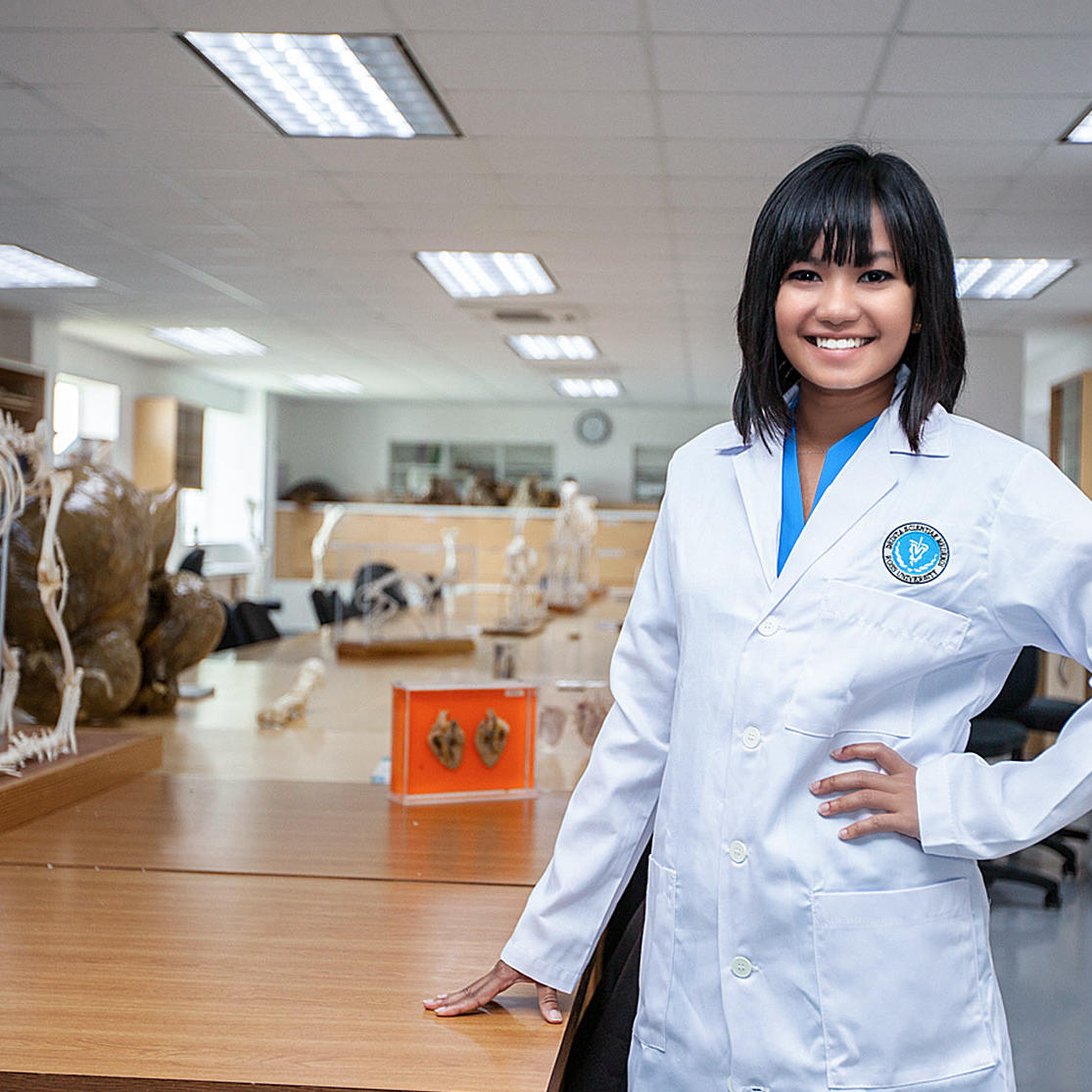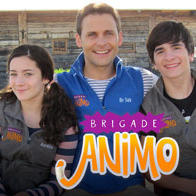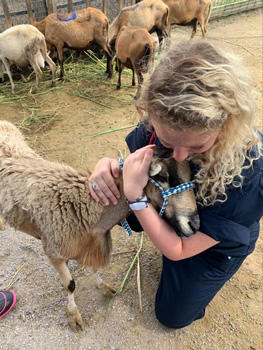As a human dentist, Katalina Cruz was always interested in more than just teeth. A 2004 dental school graduate, she began work as an assistant professor at Herzing University in Minneapolis, teaching dental assistants and hygienists. She found herself fascinated by how saliva is a mirror to the body’s condition, and how it can show signs of illness or disease. It was through her work in a community clinic where she became increasingly interested in biochemistry, oral pathology, and research.
It All Started With One Health
As a Master of Science by Coursework in One Health (MSc One Health) student at Ross University School of Veterinary Medicine, Katalina was able to continue this passion and study salivary immunodiagnostics. One Health is the collaborative effort of multiple disciplines to achieve optimal health for people, animals and the environment. The approach recognizes that the health of all three are interconnected, with efforts focused locally, nationally, and globally. For her MSc One Health thesis, Katalina developed a pilot study introducing her ideas about salivary diagnostic methods in the field of parasitology and zoonoses.
Today, Katalina is a PhD student in Ross’s One Health Center for Zoonoses and Tropical Veterinary Medicine, engaged in developing a salivary immunodiagnostic method for detection of zoonotic parasites. It was at Ross where she found a niche to apply her knowledge and expertise in dental medicine and tie it directly to One Health. Upon completion of her PhD, Katalina would like to develop a “point-of-care (POC) diagnostic tool” for zoonotic parasites that can be used outside of the lab with a saliva sample from the patient. With this tool, a diagnosis could happen on-site, similar to how a pregnancy test or a blood sugar level test can be completed at home.
“One thing about Ross University School of Veterinary Medicine that I treasure is its diversity. There are researchers from many different fields amongst us, and not all of them are veterinarians. It’s a rich environment for active learning, very rich for science,” said Katalina.
With the support of the Ross administrative team, she is pursuing her PhD under a collaborative agreement with the University of Valencia and University of Granada, both in Spain. She spends a few months each year in Spain working with her collaborators to develop immunodiagnostic and molecular parasitology components. Katalina would like to return to her roots after finishing her PhD to work in collaboration with local communities and share what she has learned as both a dentist and postgraduate student.
“A university position as professor of One Health may allow me to do this in combination with teaching,” said Katalina. “I would be thrilled to bring One Health to action as a professor and researcher.”
Extracurricular Opportunities
Katalina encourages current and prospective students to challenge themselves and take on activities outside their comfort zone, because they never know where it might lead. For Katalina, volunteering led to her first job out of dental school.
Upon leaving Costa Rica in 2005, Katalina served as a volunteer at The Raptor Center, University of Minnesota, where she cleaned cages, prepared food for the birds of prey and medications for the injured birds. After successfully passing her dental boards, a fellow Raptor Center volunteer unexpectedly became a professional contact who led her to her first job as a dentist in South Minneapolis.
“Throughout my professional life, I have learned the true value of volunteering and that is why I always encourage students to volunteer in something out of their comfort zone, to share other sets of skills apart from their clinical skills. Interaction with different people, cultures and compassion for animals are always a great recipe for ideas to happen. It is One Health







